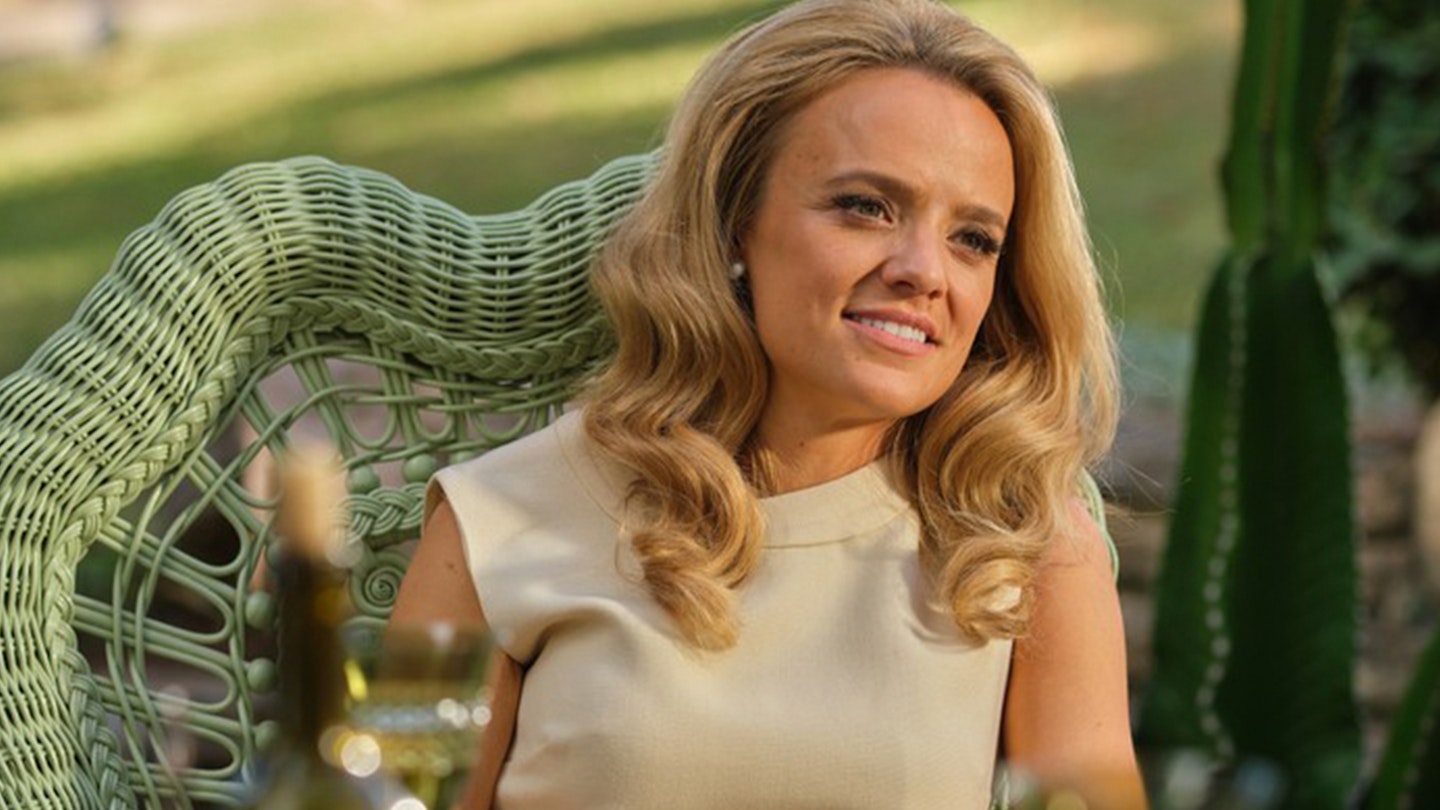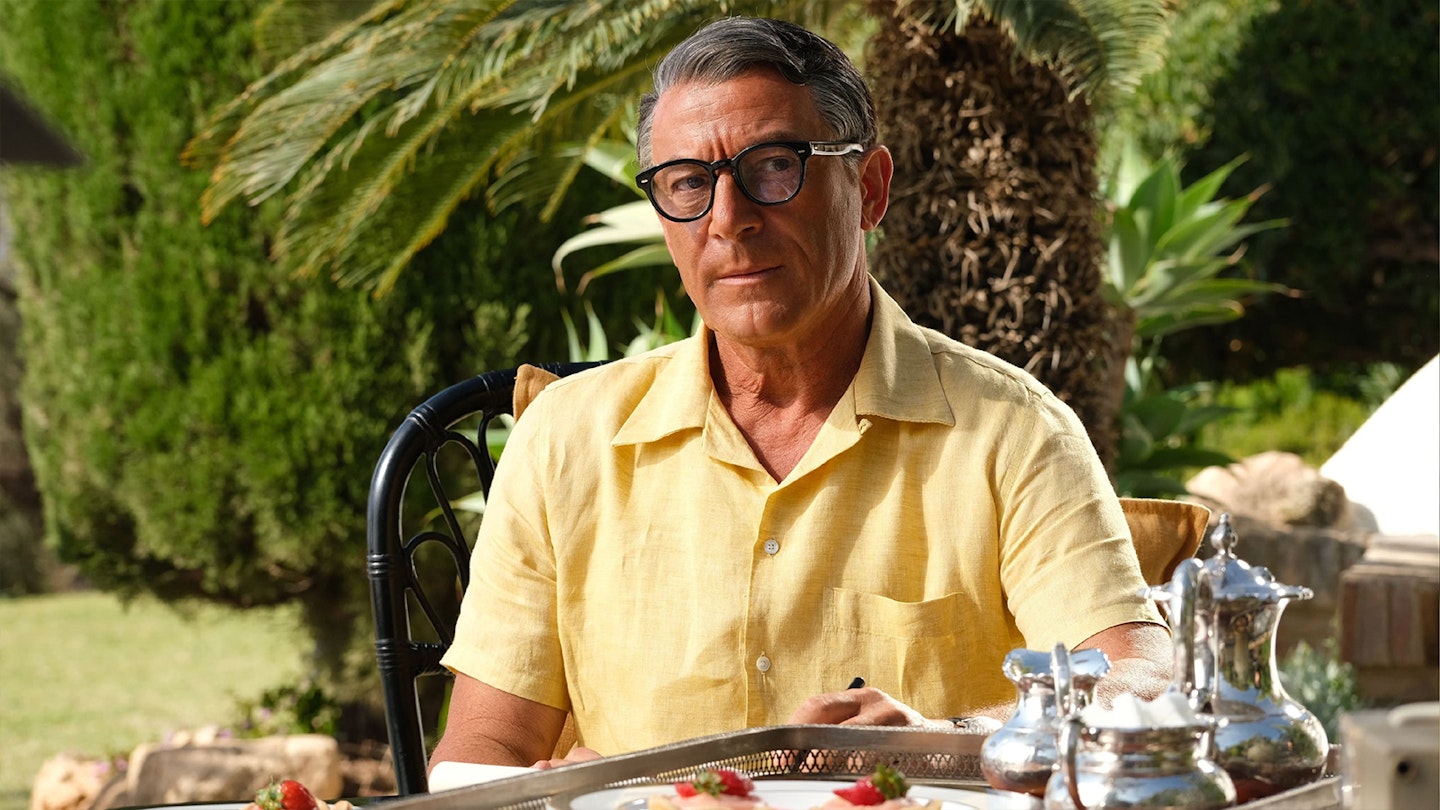It’s hard to overstate how bright the Cary Grant star shines. In an AFI ranking of ‘screen legends’, only Humphrey Bogart was ranked higher in the men’s list. He is an icon: whether goofing around with Katharine Hepburn in Bringing Up Baby, hanging off Mount Rushmore for Alfred Hitchcock in North By Northwest, or seducing Audrey Hepburn in Charade, he was always impeccably dressed and drily funny, with a preternatural sense for big-screen presence. Yet despite his fame — or perhaps because of it — Grant was an intensely private man. We have only ever been able to piece together elements of his off-screen life.
Archie is the first attempt to dramatise that life. It takes a bold actor to take on such a big actor. Jason Isaacs is undeniably that bold, and watching him stretch out in a big, meaty lead role is always a treat. It hardly hurts that he bears a remarkable resemblance to the man: not just in his handsomely refined face, Beverly Hills tan and slick salt-and-pepper hair, but in the way he carries himself, the way he wears a tailored suit, the way he moves his body and his face with wry intention and debonair purpose.

Isaacs nails the voice, too, perhaps the most challenging part of such an imitation, a unique cocktail of old Hollywood mannerism and West Country drawl; there are moments when Isaacs hits the extremely Grant-ish vowel sounds so perfectly that you forget you’re watching a performance.
But it is, most definitely, a performance; this four-part series, written by Oscar-nominated Jeff Pope (a regular Steve Coogan collaborator) and directed by Paul Andrew Williams (who did hugely impressive work on last year’s Bull) emphasises from the beginning how Cary Grant was the façade. “He is a character,” says Isaacs’ Grant, in the opening episode, to a theatre audience towards the end of his life. “I made him up. I made up the perfect man in order to survive.”
Worth poring over to witness Isaacs totally commit to finding the line where Archie ends and Cary begins.
This is the central question tugging at Archie: who was Cary Grant (his stage name) — and who was Archie Leach (his birth name)? A restless non-linear narrative tries to figure this out, exploring his life at various ages, starting with his early 20th-century childhood in Bristol — “one step away from beggars”, as his mother puts it — with parents who showed little affection and a father who lied about his mother’s death. Like a lot of performers, Archie Leach came from incredible hardship, and clearly found an alternative parental love in an audience.
So ‘Cary Grant’ — like, to an extent, Marilyn Monroe — was a shield. But Pope’s script doesn’t quite probe this idea deeply enough, and Grant’s film career gets surprisingly short shrift, despite very plausible imitations of North By Northwest and Charade. Instead, the main focus is on the rise and fall of Grant’s fourth marriage, to fellow actor Dyan Cannon (Laura Aikman, just as impressive in her imitation as Isaacs), who finds herself charmed by Grant, while also frustrated by his obvious emotional issues. (The peace both of them ultimately find when their daughter Jennifer is born in the later episodes is admittedly very moving.)
This is understandable — the series is partly adapted from Cannon’s memoir, Dear Cary — but it doesn’t always seem like we are getting the whole picture of the man whose name adorns the title. For such a cinematic icon, it doesn’t always feel totally cinematic, either. There are some great guest appearances, including a spiky turn from Harriet Walter as Grant’s estranged mother — but some of the bit-parts feel rather stagey; and the budget limitations are often felt. This is very much ITV, rather than HBO.
Still, it’s worth poring over to witness Isaacs totally commit to finding the line where Archie ends and Cary begins. He imparts more than just a solid impersonation of the man; beneath the veneer, he carefully allows hints of that childhood pain, and keeps that pain appropriately understated, always behind the shield. Perhaps the mystery of Cary Grant is the point.
